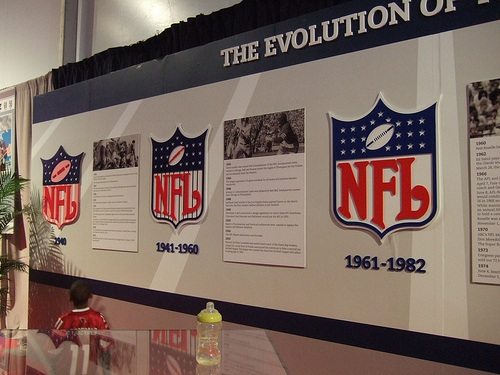
April 25, 2013; Think Progress
It’s difficult to imagine a general nonprofit journal or magazine that has written more about the tax-exempt status of the National Football League than Nonprofit Quarterly. We’ve asked why the NFL isn’t taxed, whether the tax exemption for the NFL is akin to corporate welfare, and why the NFL wanted a special set of rules for its tax-exempt status. Senator Tom Coburn (R-OK) has turned a jaundiced eye to the NFL’s tax-exempt status as often as we have, listing the NFL’s 501(c)(6) status repeatedly in his lists of wasteful tax loopholes.
After many years of complaining about the NFL’s tax exempt status—along with the 501(c)(6) status accorded to the Professional Golfers Association Tour and the National Hockey League—Coburn introduced the Properly Reducing Overexemptions for Sports Act (or “PRO Sports Act”), an amendment to the Marketplace Fairness Act that would end all that.
Sign up for our free newsletters
Subscribe to NPQ's newsletters to have our top stories delivered directly to your inbox.
By signing up, you agree to our privacy policy and terms of use, and to receive messages from NPQ and our partners.
The uniqueness of the NFL’s 501(c)(6) status is that it got its tax exemption in 1966 legislation that established “professional football leagues” as a category of the (c)(6) business or trade association, otherwise defined by the IRS as ”business leagues, chambers of commerce, real estate boards, [and] boards of trade.” You can thank former commissioner Pete Rozelle for that nifty provision, included in legislation that also exempted the NFL from anti-trust provisions.
If the NFL were simply a business or trade association, it would be a 501(c)(6) because its “purpose is to promote the common business interest and not to engage in a regular business of a kind ordinarily carried on for profit.” However, Coburn’s amendment suggests that the NFL isn’t simply promoting the common business interests and value of the sport of football, but specifically acting like a business itself in increasing its profitability and the specific profitability of its members.
We noted the same in the NFL’s Super Bowl negotiations with Santa Clara. As this Think Progress article notes, it isn’t about the business of promoting professional football, but “promoting NFL football, because it is the NFL brand and the NFL teams and logos and products that make it a profitable business.” It’s pretty clear that football leagues that aren’t named NFL, such as the United States Football League, the American Professional Football League, or the Professional Indoor Football League, aren’t high on the NFL’s trade association agenda.
As a 501(c)(6), the NFL isn’t eligible to receive deductible charitable donations. (as though it needed donors’ help.) But as a tax-exempt entity, it doesn’t pay taxes on the income that it earns. The NFL has managed to keep its income earnings a little on a low side by paying its top executives corporate-level salaries—eight NFL execs took home compensation of $51.5 million in 2010. The teams get to write off their NFL membership dues, roughly $6 million per team, for the privilege of belonging to this unusual trade association, and that money is put into a stadium fund that provides interest-free loans to teams so long as they get taxpayer financing on stadium construction and improvement costs.
The direct federal tax savings from separating the NFL from its 501(c)(6) status are hard to guess and may not be huge in the broad scheme of tax loopholes that deserve to be closed. But as a matter of fairness, the issue is clear. To many observers, the NFL’s tax-exempt status is one big practical joke that has existed since 1966. It’s time to alleviate legitimate nonprofits from having to explain the problem in the statement, “you mean the NFL is a nonprofit just like you?”—Rick Cohen












